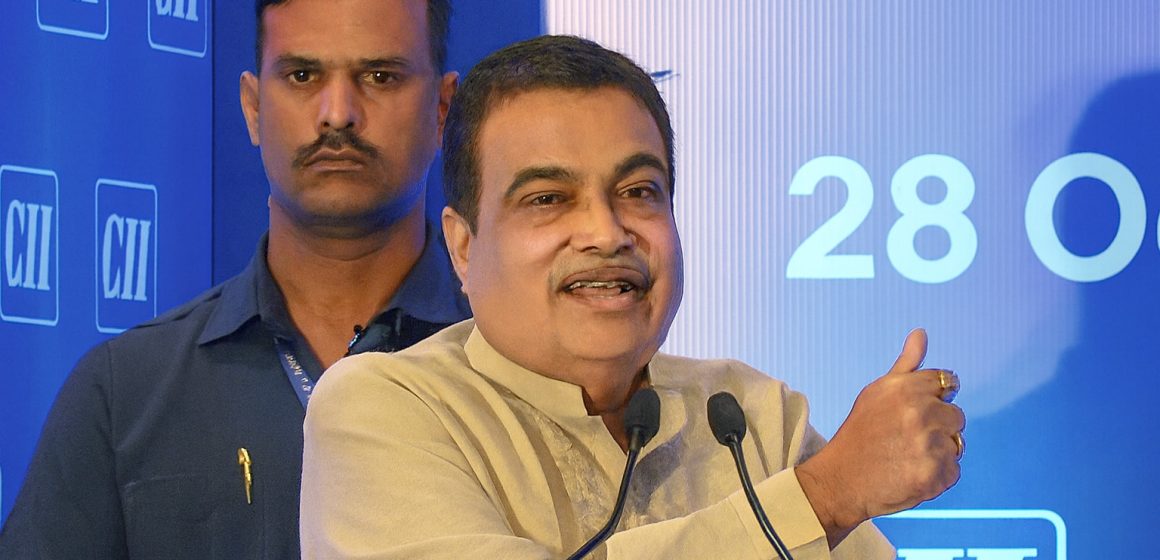The Road Transport and Highways Minister announced that details of project officials, contractors, and developers will be made public to strengthen transparency and citizen oversight.
Union Minister for Road Transport and Highways Nitin Gadkari has called for greater accountability from contractors, consultants, and officials to ensure that India’s highways are built and maintained to world-class standards.
“Every stakeholder—from the contractor to the engineer to the policymaker—must take ownership of their work. Accountability and quality are non-negotiable. Roads must not only be built but also maintained to international standards,” Gadkari said in his keynote address at the Smart Roads Conference 2025, organised by the industry chamber Confederation of Indian Industry (CII) in New Delhi on Tuesday.
Reaffirming the government’s target of a $5 trillion economy by 2027, Gadkari said the path to this vision lies in building world-standard infrastructure across water, power, transport, and communication.
“If infrastructure is strong, industry, trade, and employment will grow; income will rise, and poverty will decline.”
The Minister outlined his vision around three core pillars of people, prosperity, and planning.
On people, he said roads must deliver comfort, convenience, and safety. Modern roadside amenities, electric charging stations, and clean, accessible toilets are being developed to enhance the travel experience. Performance audits and transparent monitoring will ensure accountability at every level.
On prosperity, he cited the Dwarka Expressway as an example of how highways act as engines of urban transformation, spurring real estate development, job creation, and increased GST revenues.
“Every rupee invested in infrastructure yields three rupees for the economy.”
Gadkari noted that the road and transport sector offers immense opportunities for growth, investment, and employment. The Ministry of Road Transport and Highways’ annual revenue, currently at ₹550 billion, is projected to rise to ₹1.4 trillion within two years. Work is underway to convert 25,000 km of two-lane highways into four lanes, while a ₹2 trillion port connectivity programme is linking major ports with national highways.
On planning, he said sustainability is central to development. The ministry is adopting green construction practices using solid waste, steel slag, bamboo crash barriers, and tree transplantation. New-age fuels such as hydrogen, ethanol, and electric-powered machinery are being introduced to cut emissions and costs.
Accountability in Focus
Gadkari announced that stricter measures will be implemented to ensure transparency and performance-linked accountability across all projects. Road projects will undergo performance audits and ratings based on quality and accident data. Details of project officials, contractors, developers, and consultants will be displayed publicly, with poor-quality work or negligence inviting penalties and blacklisting. Pre-cast and factory-based construction will be made standard to improve precision, speed, and environmental compliance.
“Roads are national assets. Those who build or manage them must be answerable to the people of India.”
Highlighting the government’s push for innovation, Gadkari spoke about the adoption of alternative fuels such as ethanol, methanol, and hydrogen in transportation and heavy machinery. He added that municipal solid waste and treated wastewater would be used in road construction, alongside bamboo crash barriers and other sustainable materials. He reiterated the goal of reducing logistics costs from 16 per cent to single digits by 2026 through efficient and eco-friendly infrastructure.
“We will not compromise on quality. Together, government, industry, and engineers must deliver world-standard roads that ensure safety, sustainability, and comfort for every Indian.”
He said the availability of surplus funds must be matched by commitment and accountability.
Gadkari also reinforced the government’s commitment to building safe, sustainable, and world-class roads that drive economic growth and improve everyday mobility. As transport needs evolve, India is shaping smart roads that integrate technology with essentials such as pedestrian access, EV charging, fuel stations, parking, and modern roadside amenities.


